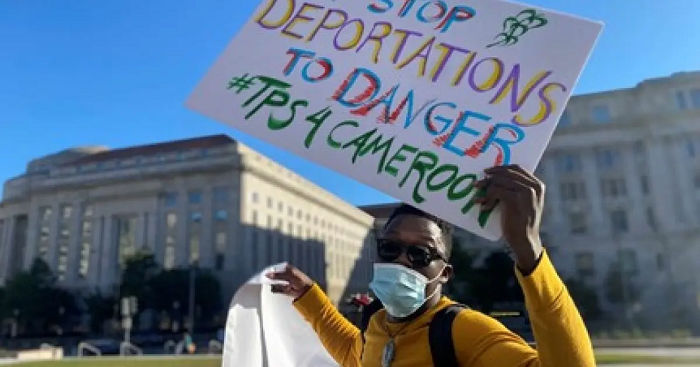
Since May 2024, the United States has permitted 27 Cameroonian asylum seekers to return after they suffered severe harm post-deportation in 2020. This decision followed a coalition of human rights groups revealing that the asylum seekers faced abuses in Cameroon and mistreatment in US immigration detention.
In 2020, during the Trump administration, numerous Cameroonian asylum seekers were deported despite ongoing risks in their home country. ICE officials had prevented many from accessing their luggage containing sensitive asylum documents, leading to their exposure and subsequent abuse by Cameroonian authorities. A Human Rights Watch report in 2022 documented instances of rape, torture, arbitrary detention, and other severe abuses suffered by these deportees in Cameroon.
The US Department of Homeland Security granted humanitarian parole to the 27 Cameroonians, allowing them temporary entry into the US on humanitarian grounds. This decision was based on ICE’s violation of asylum confidentiality regulations, which contributed to the harm these individuals faced. The returnees are allowed to stay in the US for one year, during which they can reapply for asylum.
“When I fled my country and made my way to the US border, I thought that America would be a safe haven,” said one of the returned asylum seekers. “But with all the suffering I went through during immigration detention and deportation, I felt betrayed. Sending us back to Cameroon with our documents exposed was like putting a target on our backs. Now, for the US to finally right this wrong means there’s still hope. I can dream again.”
Cameroon has experienced significant conflict and violence, leading to a humanitarian crisis and a crackdown on dissent. Violence by government forces and separatist groups has caused mass displacement. In 2020, US immigration courts granted asylum to fewer Cameroonians than in 2019, with many deportees having credible claims but facing unfair denials.
In US detention, Cameroonians faced mistreatment, including hunger strikes, pepper spray, beatings, and solitary confinement. Deportations surged in late 2020, violating the principle of non-refoulement and breaching confidentiality.
“The 27 Cameroonian asylum seekers who have returned to the US suffered unimaginable abuse at the hands of both US and Cameroonian authorities,” said Daniel Tse, founder of the Cameroon Advocacy Network. “The US government took a positive step by approving their returns, but it should not have taken four years to remedy its error. This highlights the urgent need for reforms within the US immigration system and the ongoing need to protect Cameroonians from deportation.”
These 27 individuals are part of a larger group of Cameroonians in need of protection. In 2022, the Biden administration designated Cameroon for Temporary Protected Status (TPS), protecting Cameroonians from deportation for 18 months, later extended until June 2025. However, application backlogs have prevented many from accessing protection. Advocates urge the US government to increase resources for processing applications and continue to redesignate Cameroon for TPS due to ongoing risks.
Supporting groups include Robert F. Kennedy Human Rights, Haitian Bridge Alliance, Human Rights Watch, Cameroon Advocacy Network, Witness at the Border, the Center for Constitutional Rights, and Texas A&M School of Law Legal Clinics.






Be First to Comment